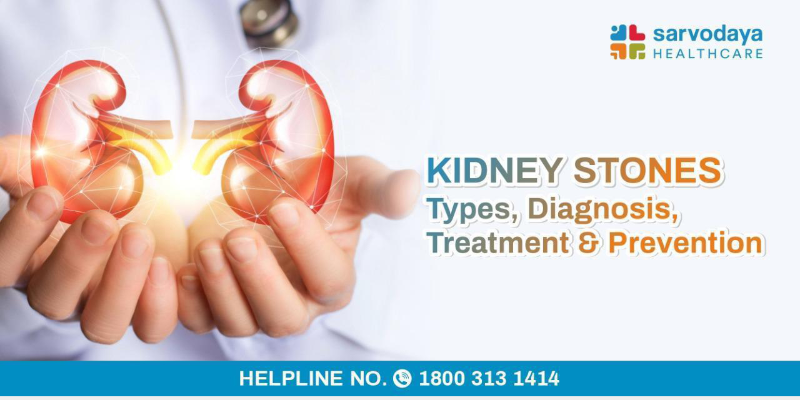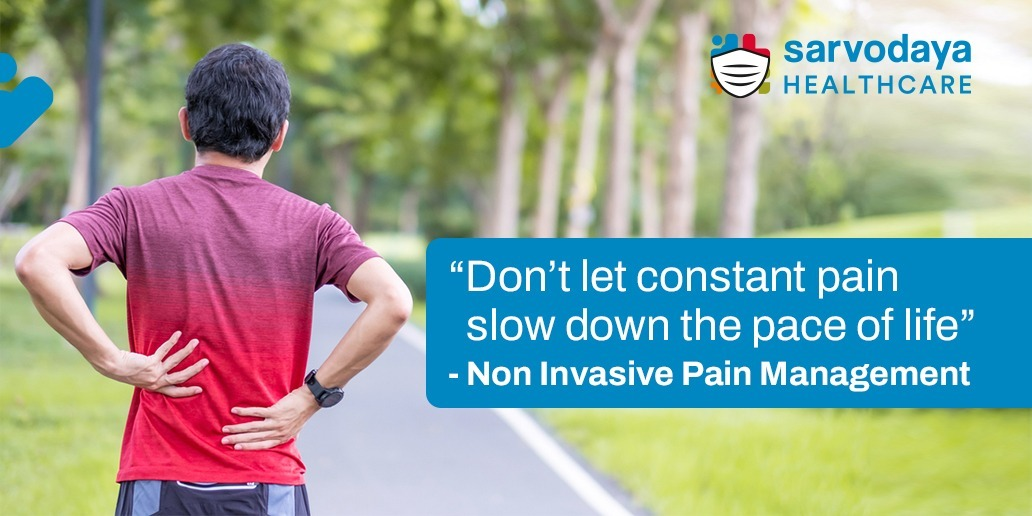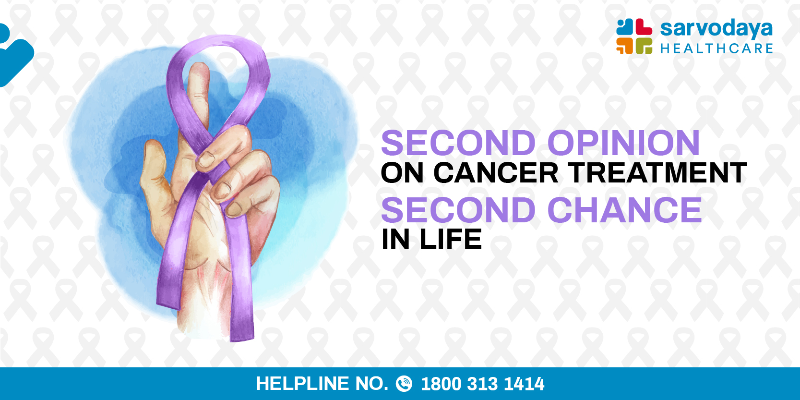Kidney stones or renal calculi are hard solid deposits, made of minerals & salts that form inside the kidney. Kidney stones occur due to many reasons such as unhealthy diet, obesity, certain medical conditions, supplements and medications. These stones affect our urinary tract and cause many health issues. Formation of kidney stones happen, when the urine is concentrated and does not allow the minerals to crystallise and bind with each other. Although kidney stones do not cause any permanent damage if detected in time, but passing them is quite painful. Depending on the situation, kidney stone treatment is done with pain medication & a lot of water intake to pass the kidney stones. If they get stuck in the urinary tract it could lead to associated urinary infections or complications, in which case the patient might need to undergo surgery.
Types of Kidney Stones
Knowing the types helps to determine the cause & subsequent treatment method to be adopted. It also helps to reduce the chances of developing more stones. If possible, your medical team should collect your kidney stones while passing and give them for medical analysis, to be able to prevent it from happening again.
Kidney stone types include:
- Calcium stones: Usually, most of the kidney stones are calcium solidified in the form of calcium oxalate. Oxalate is a substance generated daily by our liver or consumed through our diet. Certain food items have high oxalate content. Other than that, diet, high doses of Vitamin D, certain metabolic disorders and intestinal bypass surgery, are some factors that might increase the risk of concentrating calcium or oxalate in urine.
- The other types of calcium stones found are made up of calcium phosphate. Calcium phosphate stones are more common in metabolic conditions like renal tubular acidosis, or with consumption of certain medications used for migraines or seizures.
- Uric acid stones: Uric acid stones are usually formed in people who lose too much fluid due to chronic diarrhoea or malabsorption, eat a high-protein diet, are diabetic or have metabolic syndromes. Genetics also increases the risk of uric acid stones.
- Struvite stones: Struvite stones form due to Urinary Tract Infections, grow really quickly and can become quite large. They sometimes exhibit few symptoms or little warnings.
- Cystine stones: These stones are common in people with a hereditary disorder of Cystinuria. In this condition, the kidneys excrete too much of a specific amino acid, which forms these stones.
Diagnosis
If your doctor suspects that you have a kidney stone, you may have to undergo a few diagnostic tests and procedures, such as:
- Blood testing: Blood tests may reveal too much calcium or uric acid in your blood. Blood test results, help monitor the health of your kidneys and may lead your doctor to check for other medical conditions.
- Urine testing: The 24-hour urine collection test may show that you are excreting too many stone-forming minerals or fewer stone-preventing substances. For this test, your doctor may request that you perform two urine collections over two consecutive days.
- Imaging: Imaging tests may show kidney stones in your urinary tract. High-speed or dual energy computerized tomography (CT) may even reveal tinier stones. A simple abdominal X-ray is used less frequently because this kind of imaging test can miss small kidney stones.
- Ultrasound, a non-invasive test that is quick and easy to perform, is another imaging option to diagnose kidney stones.
- Analysis of passed stones: You may be asked to urinate through a strainer to catch stones that you pass. Lab analysis will reveal the makeup of your kidney stones. Your doctor uses this information to determine what's causing your kidney stones and to form a plan to prevent more kidney stones.
Kidney Stone Treatment
Depending on the type of kidney stone, an appropriate treatment plan is made. Usually, stones are collected through urine straining, which requires the patient to drink six to eight glasses of water, a day, to increase their urine flow. Severely dehydrated patients are given intravenous fluids for the same.
Other Kidney stone treatment include:
Pain relief medication
Pain relief or narcotic medications are given and if the infection is present then they are treated with antibiotics. Other medications are given to prevent calcium stones forming or make the urine less acidic.
Lithotripsy
Lithotripsy, extracorporeal shock wave uses sound waves to break the large kidney stones so that they can easily pass through the ureters into the bladder. This procedure may require light anaesthesia and may cause bruising on the abdomen, back and bleeding around the kidney and nearby organs.
Key Hole surgery
Also known as Percutaneous Nephrolithotomy, is a procedure that involves removing the kidney stones through a small incision made in the back. This procedure is done when the stone causes obstruction, infection or starts damaging the kidneys and the stone grows too large to pass or causes severe pain, which cannot be managed through medications.
Ureteroscopy
When the kidney stones are stuck in the ureter, an instrument called a Ureteroscope is used to remove them. It is like a small tube through which instruments to break stone (like LASER or mechanical energy) are passed and stones are removed.
Retrograde Intrarenal Surgery (RIRS)
With time, techniques have evolved and most Kidney stones can now be treated with this minimally invasive technique using flexible ureteroscopes which can be passed as high up as Kidney, through natural urinary tract without having to make any cut on the body. LASER is used to powder the stones in this technique.
Kidney Stone Prevention
- Drinking enough water is required to pass about 2 litres of urine each day. This helps to flush the kidneys and decreases the chances of kidney stone formation.
- Choose a low-salt and low animal protein diet to lower your risk of kidney stones.
- Avoid diets rich in oxalate content.
- Take calcium supplements or calcium-rich food but always discuss with your doctor about the quantity you need.
- Stay active, stay fit. People with sedentary lifestyles have higher chances of stone formation.
Sarvodaya Hospital & Research Centre, Sec-8, Faridabad is a leading medical institution for treating all nephrological conditions and is supported by renowned nephrologists of this country.










